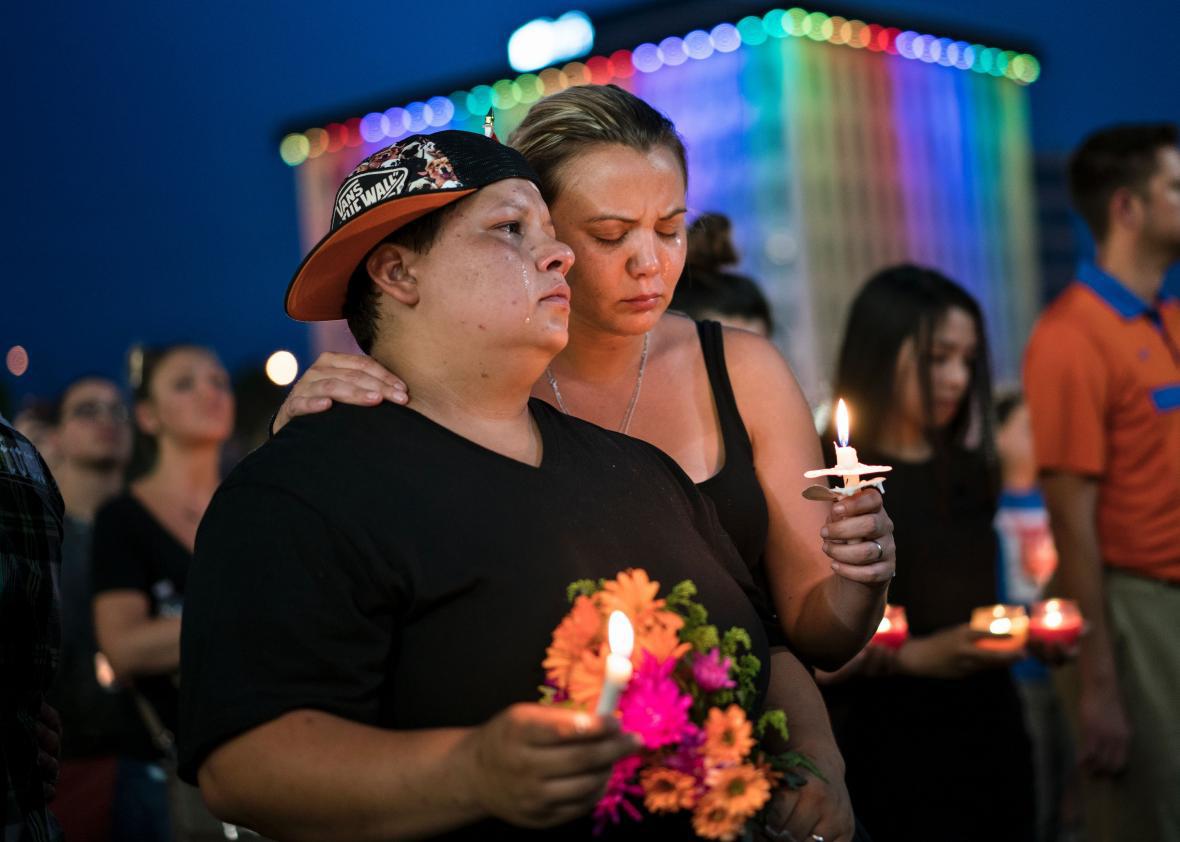I’ve been out since high school, but before Orlando I rarely thought of myself as being different from straight, cisgender people. After an early series of unsatisfying encounters with LGBTQ support and advocacy groups, and a total aversion to gay nightlife once I reached drinking age, I decided that queer culture just wasn’t for me. This was perfectly OK, I thought: I just got on better with straight people, and since there were so many of them it was no hardship. I even thought this was the future of queerness. Sure, I appreciated the political gains LGBTQ activists had made, and on an intellectual level I understood why marginalized people might have needed to band together into a subculture. But I figured that all this activism and separatism was rapidly becoming old-fashioned and even outdated. I doubted there’d be any need for it in the coming decades, and I suspected it would fade away, allowing queer people to just be, well, people. I even wrote once, cheekily, that I was “dancing on the grave of gay culture.”
Orlando changed that. I didn’t expect it to, I didn’t want it to, but I was devastated to discover a deep gulf—a gulf whose existence I’d always denied, between myself and the straight/cis people in my world. The only consolation has been to learn that I’m more a part of the queer community than I ever thought I was.
This gulf has revealed itself in many ways. I became conscious of it when my mother called on Sunday night. She asked how I was doing, and I gave a deep sigh and answered uncertainly. She was confused and wondered if something bad had happened to me or my wife—it didn’t immediately occur to her that we’d been affected by the shooting. (The next day, I did an interview with the director of an LGBTQ advocacy organization, a woman I had never met or spoken with. When I asked her how she was, she gave a deep sigh and answered uncertainly. I didn’t wonder why. I knew why.)
Another example: As my wife and I discussed the shooting at a bar on Monday evening, the straight bartender interrupted to ask us if we really thought that nightclub had been chosen on purpose, to target gay people. We left as soon as we could for a nearby mixed-clientele bar where we knew there’d be other queer people. This isn’t something I’d ever imagined myself doing, but Monday night I just couldn’t imagine talking about the shooting in earshot of someone who had to ask if it was motivated by anti-gay bias.
The queer people in my life all felt the same things I felt—desperately mournful, angry, frightened, and desiring of political action in response to an attack on all of us. We were raw. We were wounded. We went off half-cocked on social media, or started crying openly at vigils, or drank heavily, or danced. (Or so I’ve heard. I do not dance.)
Many of the straight/cis people in my life just … didn’t have the same reaction. It didn’t hurt them the way it hurt me, and to add insult to injury, it often didn’t occur to them how much my people were hurting. They did things that seemed crazy to me, unforeseen, and inexplicable. They whitewashed the LGBTQ identities of the victims or treated them as an afterthought. In perhaps the most bizarre intellectual move I’ve ever seen, some conservative Christians even attempted to take credit for the relative tolerance the LGBTQ community has achieved in the Western world and blame Islam for the existence of violent anti-gay bigotry.
It has been hard for me to keep my cool with straight people I consider myself close to. I’ve found myself avoiding them and seeking out queer people for comfort. I’ve also found myself feeling afraid that queer people might reject me, might leave me stranded in the straight world I’ve tried so hard to be a part of. The sense of belonging that other queer people described feeling in queer spaces always eluded me before Orlando. Perhaps it will again, but for now our shared response to tragedy has overwhelmed my awkwardness around queers who are more closely connected to gay culture and gay politics.
I’m not trying to suggest that my reactions were the right ones, and others’ reactions were wrong. (There’s my assimilationist, conciliatory nature coming out again.) But my reactions were different. Profoundly so. I saw the tragedy as a queer tragedy, felt the attack as an attack on queer people, and I was afraid as a queer person who might also be attacked for my identity. I felt in need of other queer people to help me through it. This distance from the straight/cis world wasn’t something I expected, and it’s certainly not something I’ve ever wanted. I wanted to be just like everybody else, with my gender identity and my sexuality a minor matter on the level of my hair or eye color. This distance from the straight world, where I thought I belonged, came looming out of Orlando like a mountain on a foggy morning, and my assimilationism flew right into it. As long as there is hatred of difference, there will be a need for spaces where the different can escape that hatred, and those spaces will be vulnerable and fleeting and precious. I know that now. What a fool I was not to have seen it earlier.
